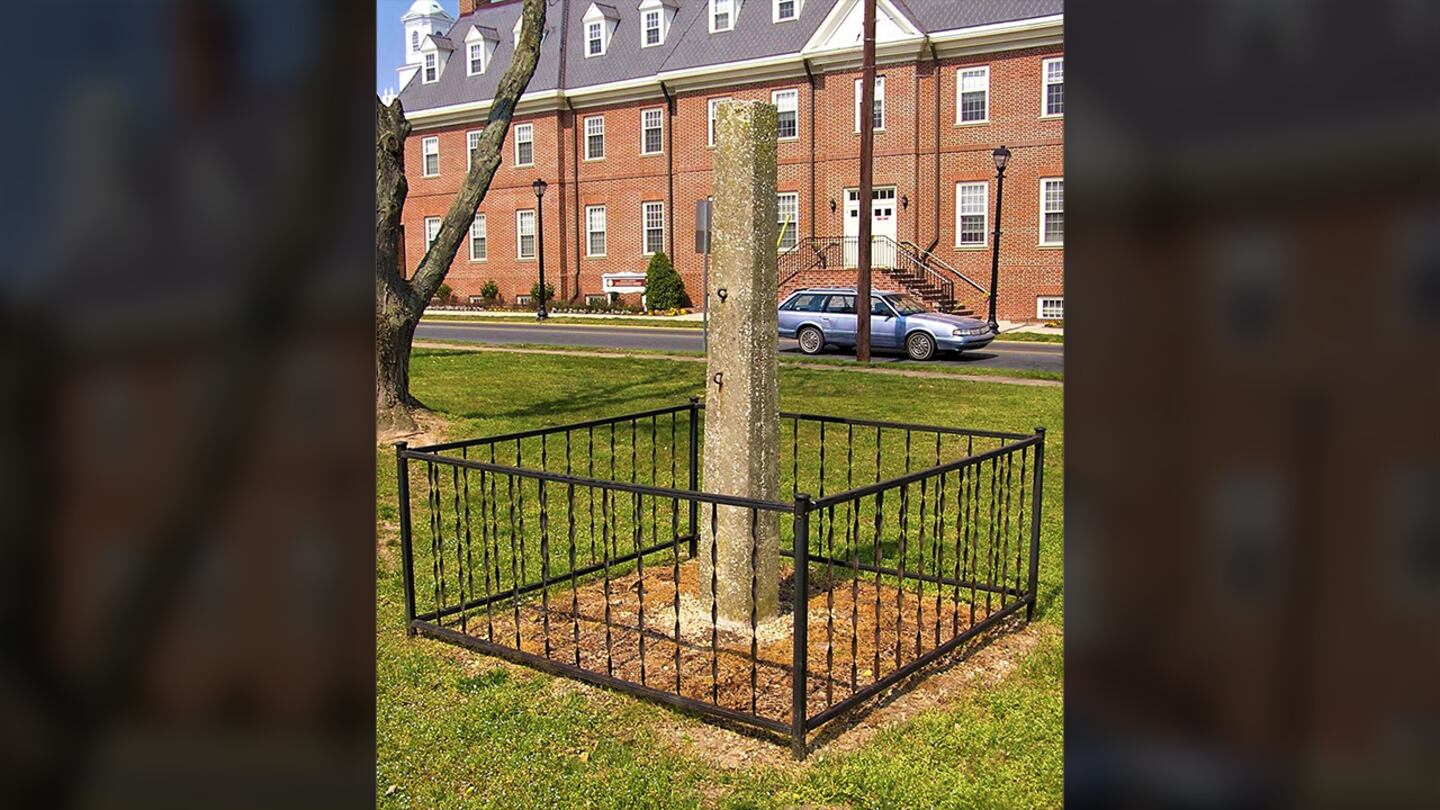GEORGETOWN, Del. — Dozens of people gathered Wednesday morning outside the Old Sussex County Courthouse in Georgetown as crews worked to take down what’s believed to be the state’s last whipping post on public display.
Preparing to remove post pic.twitter.com/LSM5uhjSW2
— Jenna Margaretta (@jennamargaretta) July 1, 2020
The Delaware Division of Historical and Cultural Affairs had announced plans Tuesday to take down the post, which was installed in September 1993, noting that it signified “violence and racial discrimination” to many state residents.
In a statement, Reba Hollingsworth, vice-chair of the Delaware Heritage Commission, applauded the move.
"Such relics of the past should be placed in museums to be preserved and protected for those who want to remember the cruel, inhuman, barbarous acts perpetrated on our citizens," she said.
Whipping posts were used as corporal punishment across Delaware into the 20th century, with the last known use occurring in 1952, according to HCA. Officials said punishment by whipping post was "disproportionality applied to persons of color" for a variety of crimes, with people sentenced to as many as 40 lashes for a single offense.
Delaware was the last state to abolish the whipping post in 1972.
The post taken down Wednesday was originally used to bind people outside the Sussex Correctional Institution south of Georgetown, according to HCA. It was donated to the state in 1992.
The post will be stored with other historical objects and artifacts -- including another whipping post that previously stood in Dover -- as HCA explores plans to display it in a museum setting "where it can be properly contextualized and interpreted," officials said.
“It is appropriate for an item like this to be preserved in the state’s collections, so that future generations may view it and attempt to understand the full context of its historical significance,” HCA Director Tim Slavin said Tuesday in a news release. “It’s quite another thing to allow a whipping post to remain in place along a busy public street – a cold, deadpan display that does not adequately account for the traumatic legacy it represents, and that still reverberates among communities of color in our state.”
The decision to remove the post came amid a national reckoning with racism sparked by police violence and the May 25 killing of George Floyd at the hands of Minneapolis police. Demonstrators protesting racial injustice and police brutality have pulled down statues and memorials connected to slavery and colonization in cities nationwide.
© 2020 Cox Media Group









